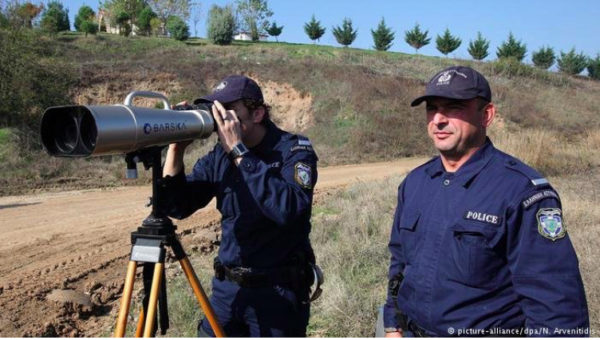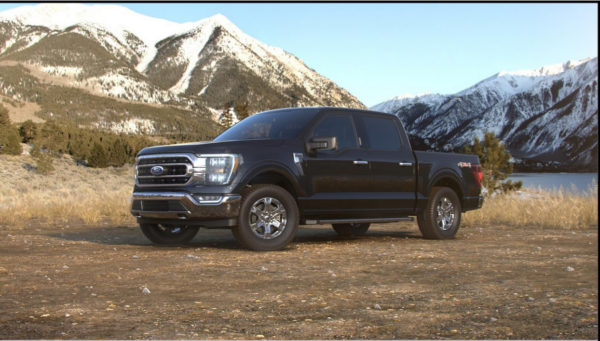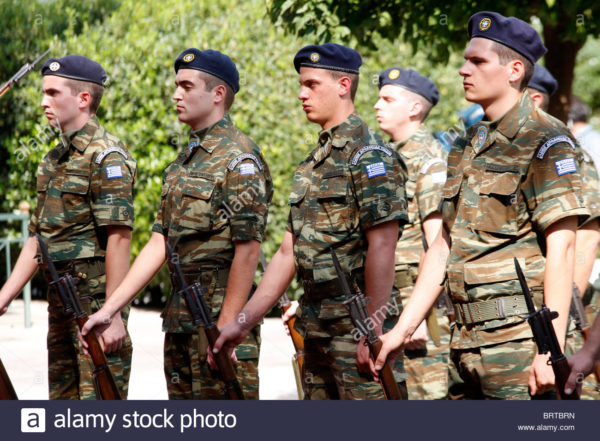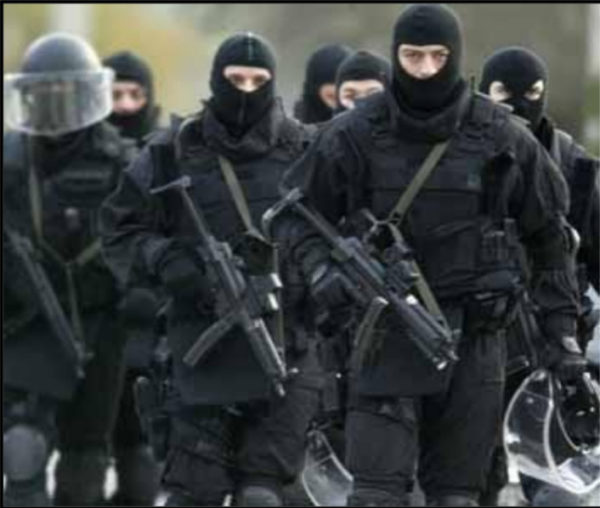On the 5th of February 2022, at approximately 6 am, the respondent, a 36-year-old Syrian man, reports that he and his eight-year-old son were pushed back from Neo Cheimonio, Greece to Elçili, Turkey. Of the 56 other people on the move (POM) forcibly pushed back at the border, both women and minors were present. This was the respondent’s fourth pushback to Turkey.
On the previous day, the respondent, his son and six other POM loaded into a van and traveled from Istanbul to Edirne. The POM’s ages ranged from eight to 40 years old. There were two women present. The respondent’s son was the only minor. All passengers were Syrian. From Edirne, the POM traveled to the Turkish border.
They managed to cross to Greece at around noon on the 4th, then walked for three hours. Spotting a hiding place near Sakkos, the eight POM rested at around 3:30 pm. At approximately 7 pm the group began moving again. Yet, only four hours into the next stretch of their journey on the outskirts of Sakkos, the POM were abruptly stopped. Blinded by oncoming lights, the respondent soon saw eight men in uniforms resembling those of Greek border guards surrounding them.
Of the eight men present, three were wearing sage green jackets. The remaining five wore blue tops with ‘Police’ written in English on the chest pockets (see Image 1). The men dressed in blue uniforms carried firearms resembling submachine guns. Tucked into an old, dried-out river, the respondent, his son, and four others did not resist when the men in uniform told them to come out. They addressed the POM only in English. With hands raised, the respondent watched as the other two POM unsuccessfully attempted to avoid capture. The time was approximately 11 pm on February 4th, 2022.

The respondent, his son, two women and two other male POM stayed kneeling outside of the dried-out ditch as the officers chased after the other two POM. Once captured, the officers beat the two men’s arms with their plastic batons and kicked them for nearly two minutes.
With all eight POM gathered in one place, the officers moved the group near to the cars where they began searching and questioning each of them. All cell phones were confiscated. With the vehicles in clear sight, the respondent described one as a black Ford truck with a large spotlight (see Image 2). The other two were blue and white cars with ‘Police’ written on the side – a make and style starkly resembling those of the Greek police. They kneeled in this location for approximately 30 minutes until the arrival of an unmarked, white Mercedes van.

Image 2: Unmarked Black Ford Truck
source: https://www.ford.com/trucks/f150/
With the doors to the van open, the respondent found no other POM in the three-by-two-meter trunk. Inside, he spotted a few Turkish Lira on the ground, “probably from other peoples [who were] caught”. Driven by two additional men dressed in civilian clothing and balaclavas, the van began to move. The driving was reportedly fast, with the van occasionally drifting. Nothing outside was visible during the entirety of the 15-minute drive.
When the van stopped and doors swung open, the respondent reported that he saw an old (seemingly) abandoned building with a small yard in the front encircled by a fence. Excluding one, single Greek flag, the building was completely unmarked and unidentifiable. The surrounding area was sparsely populated with residential buildings and caravans. Inside the building, they were met by seven additional men and one woman dressed in sage green uniforms with ‘Police’ written in yellow on the left chest and a yellow stripe on their shoulders. In the back of the main entrance, the respondent spotted one red and one black vehicle with three-by-two-meter trunks.
Three of the men began searching the POM – frisking each of the adults for around three minutes, including the two women. The men were forced to remove jackets, shirts, and pants during the search. The respondent reported that the men in uniform slapped those who could not understand them. There were no translators present.
Even with one female present among the group of eight authority figures in uniform, the men proceeded to physically search the women. Reflecting on the incident, the respondent noted that one of the men dressed in sage green uniform “kept touching [the woman’s] body… She was crying…and he [only] screamed in her face, to ‘shut up’, and pushed her [against] the wall.” When asked where the officer touched the woman the respondent answered, “Everywhere.”
When the search was finished, the uniformed officers returned the POM’s bags. The eight POM were then corralled into a small, five-by-three-meter room with “metal bars in front and a metal door that locked from outside.” Inside the cell, they met 50 other Syrian, Afghan Somali, and Moroccan POM aged between eight to 60 years old. Including his son, there were 10 minors in the group along with four women. The respondent described that the mud ground of the cell as filthy. Other than an old, uncleaned toilet, there was only a four-person bunk bed bereft of mattresses. On the walls, the respondent found names.
The group waited for nearly four hours before being released from the overcrowded den. The time was approximately 4:30 am on the 5th of February. Three men masked in balaclavas wearing camouflage jackets, jeans and black sneakers finally came and opened the metal door. In their hands, they carried wooden batons. As the POM filed out of the cell, the men clad in camouflage beat every adult on the back, including the women.
Once out of the cell, the respondent reported a horde of around 17 additional men waiting for them. Their uniforms varied, with five men dressed in civilian clothing, four who wore blue uniforms (see Image 1) and eight who wore green uniforms – six of whom were wearing balaclavas. From the detention site, they were loaded into the same white van in which they arrived. The van reportedly had no license plates.
As they loaded 34 of the 58 POM into the vehicle, the men in uniforms reportedly beat the adults for approximately ten seconds each. Women were not beaten at this point, but many of the minors could not dodge the men’s blows. In the front seat of the van sat three more men. The respondent could not confirm what clothing the three men wore.
The group was driven along a paved and then eventually unpaved road for around 15 minutes. When asked about the drive, the respondent reported that “it was fast and horrible. We couldn’t stand up. It was hard [to breathe] and the door of the trunk was locked. There were no lights and we heard women crying…my son started freaking out.”
When the car finally stopped and the door opened, the respondent saw a forest around him along with a small yard where the POM were told to line up. At this point, he spotted the other 24 POM who had also been held in the cell. The remaining 24 POM had been transported in another white, unmarked van from the detention site and brought to the same location. The group of 58 stood in one line near the edge of the Evros/Meriç River.
They were met by 13 additional men in uniform – three of whom wore green camouflage (see Image 3), resembling Greek Hellenic Army uniforms, two wore unmarked, black uniforms like those worn by the EKAM unit (see Image 4), and the remaining eight dressed in civilian clothing. Those in camouflage and in black wore balaclavas. The men dressed in green camouflage uniforms carried what resembled automatic firearms, while the men in Greek EKAM uniforms carried firearms resembling submachine guns. Some of the men in civilian clothing reportedly spoke Syrian or Iraqi Arabic.

Image 3: Hellenic Army Uniform
source: https://c8.alamy.com/comp/BRTBRN/greek-army-BRTBRN.jpg

Image 4: Greek EKAM Officer Uniform
source: https://www.pinterest.co.uk/pin/385268943105466212/
With all 58 POM in a line, the respondent reported, they were told that “any person hiding money or phone [should] take it out and give it [to the uniformed men] before we search you and find it… then we will beat you.” At this point, one of the uniformed men took 150 Euros from the respondent. His son and the women around him were also searched. During the search, the respondent was beaten over his shoulder with a branch. Near him, he saw the uniformed men beat another POM. When asked about the incident, the respondent reported that one of the men dressed in civilian clothing beat one young Moroccan man who had stashed money in his underwear. They then beat him, stripped him down, and pushed him back naked.
Near them, the respondent spotted a green camouflage and white boat made of plastic. The size was reportedly around three-by-two meters and had no engine. After an hour of being searched, beaten, and humiliated, the respondent and his son were loaded into the small, plastic boat. The entire apprehended POM was loaded in stages in smaller groups of nine into the boat. Two of the eight Arabic-speaking men in civilian clothing and balaclavas accompanied the groups.
Anxious and stressed, the group continued fidgeting while in the boat. Even with any minor move, the masked men slapped the POM upside the head. As a part of the last group pushed back, the respondent confirmed that every one of the entire 58 POM was pushed back.
The time was around 6 am on the 5th of February.
Back on Turkish soil, the respondent and his son were completely disoriented. Around him was only an agriculture field and a few trees near the river. Unable to find the others with whom he had originally crossed over, the two of them began walking in an unknown direction. They soon arrived in Elçili, where a local pointed them in the direction of Edirne. With no remaining money, exhausted, and cold, the respondent and his son made the two-day (30 KM) journey to Edirne. When they arrived, the only respite they found was under a bridge – sleeping for a night before continuing into the city in search of the six other POM who had crossed with them days earlier.
When asked whether the respondent requested asylum, he responded: “I couldn’t, I was afraid that [if] I talked [they would] beat me and my son.”
No food, water, or medical support was offered nor were translators provided during their detention or pushback. Neither photos nor fingerprints were taken.
